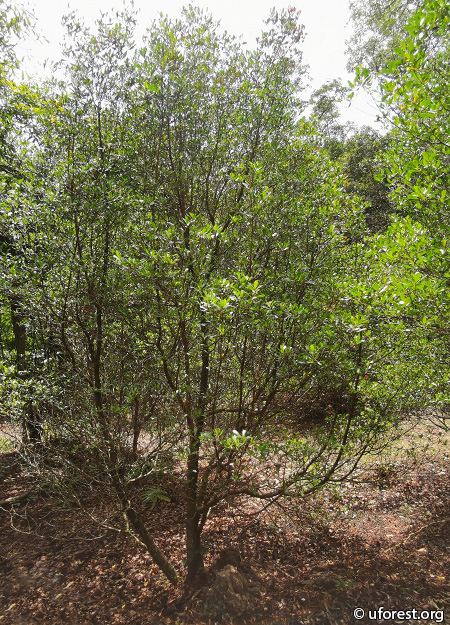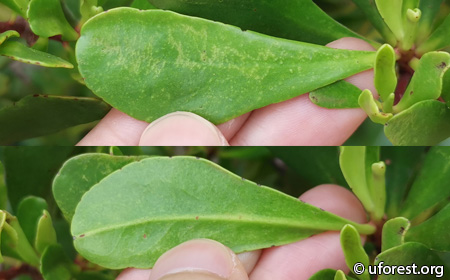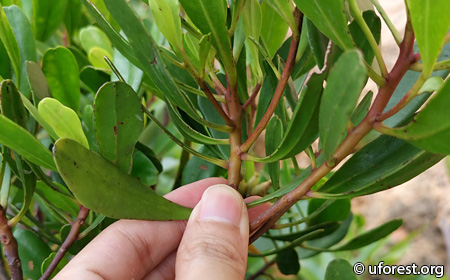Lumnitzera littorea (Jack) Voigt
| Etymology | Genus | From the German botanist, Stephan Lumnitzer |
|---|---|---|
| Species | Seashore, referring to its mangrove habitat | |
| Family | Combretaceae | |
| Synonyms | Bruguiera littorea Steud., Lumnitzera purpurea (Gaudich.) C. Presl, Pyrrhanthus littoreus Jack | |
| Common Names | Red Teruntum, Teruntum Merah | |
| Status | Native: Endangered | |
| Form | Tree | |
| Native Distribution | From East Africa to tropical Asia, northern Australia and Polynesia | |
Diagnostics:
Lumnitzera littorea is a mangrove tree occurs usually at the landward side of the mangroves at soft muddy substrate, where tidal inundation is rare. Young branches are reddish brown in colour. The fleshy and leathery leaves are narrowly obovate-elliptic, with notches running along the margins. The inflorescences are bright red in colour and nectar production attracts birds and butterflies.
Another congener, Lumnitzera racemosa is similar in form and leaves, but having white flowers instead.
Interesting Facts:
The timber of the Red Teruntum is valued for its high durability (Giesen et al., 2006), being reportedly free from decay after 50 years of the wood being submerged in salt water. It is used for building bridges, wharves, cart axles, flooring and sleepers. Its attractive appearance and rose-like scent also makes it suitable for making cabinets.

A young stand of Lumnitzera littorea in Pasir Ris Mangroves (2020).

Leaves upper and lower surface.

Young reddish branches.

Old branches.

Inflorescence.

Fruits.
References
Giesen W, Wulffraat S, Zieren M & Scholten L (2006) Mangrove guidebook for Southeast Asia. RAP Publication 2006/07. FAO Regional Office for Asia and the Pacific and Wetlands International. Bangkok. 769 pp.
Author: Siyang
Posted: 2020-03-31 / Modified: 2025-08-18